Wellbeing First | UWC Changshu Launches a Global Movement
Issue date:2025-04-25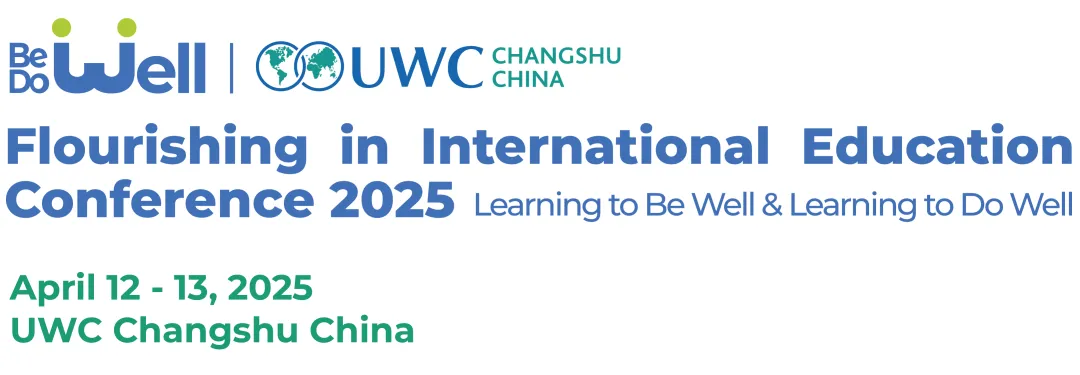
When one in four adolescents is affected by depressive symptoms, when a materially privileged generation finds itself adrift in a psychological wasteland of "Empty Heart Syndrome," and when the drive to learn is drowned in the struggle of "drowning-style learning"—these are no longer isolated issues. As social media replaces genuine connection with "artificial intimacy", and AI tools silently erode the capacity for deep thinking, these challenges—etched with the imprint of the digital era—have become a pressing call for every society that cares about the future of its youth.
On April 12–13, the Flourishing in International Education Conference 2025: Learning to Be Well & Learning to Do Well was successfully held at UWC Changshu China. Over 200 educators, mental health professionals, and school leaders from the Chinese Mainland, Hong Kong, and Singapore gathered for this one-and-a-half-day event, engaging in insightful conversations on adolescent wellbeing in the digital age. From macro trends to micro-level strategies, the conference explored effective approaches to support the holistic development of young people.
Day 1
Addressing Mental Health Challenges and Coping Strategies in the Digital Age
Keynote by Prof. Xu Kaiwen
A Deep Dive into "Empty Heart Syndrome" and "Drowning-Style Learning"
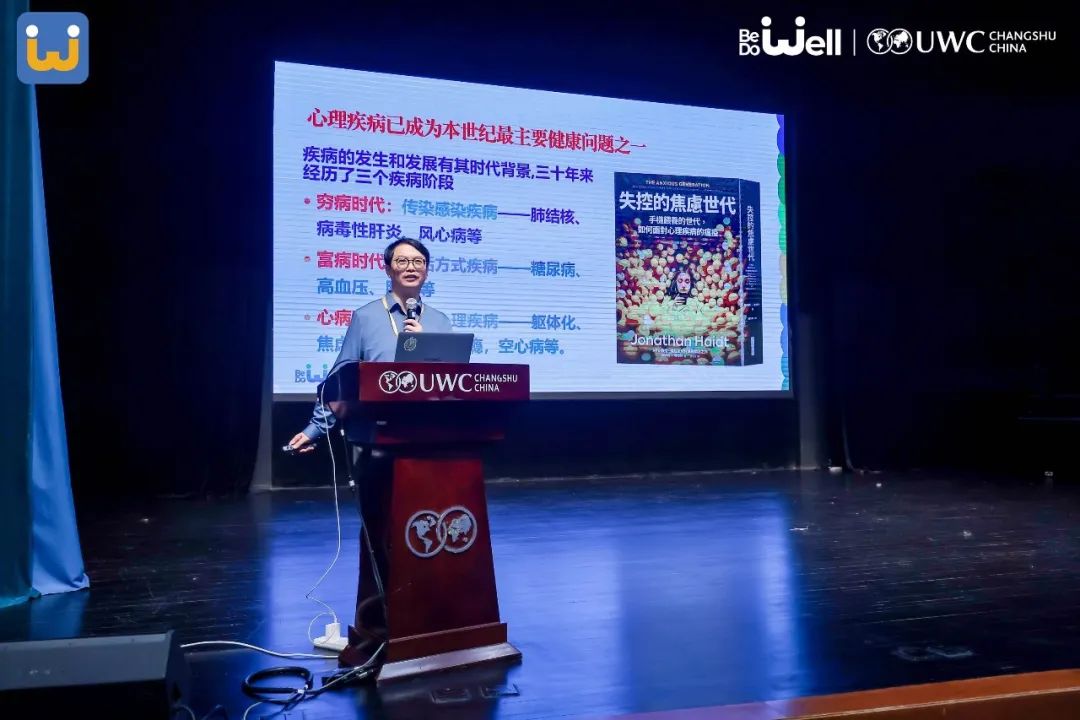
The conference opened with a keynote speech by Prof. Xu Kaiwen, PhD in Clinical Psychology from Peking University and psychiatrist at United Family Healthcare. Titled "The Impact of the Internet and Artificial Intelligence on Adolescent Mental Health | A Once-in-a-Century Transformation," Prof. Xu traced the evolution of China’s health landscape over the past three decades—from infectious diseases to lifestyle illnesses, and now to a burgeoning mental health crisis among adolescents. He highlighted that 26% of Chinese youth exhibit depressive symptoms, with 17.5% meeting the criteria for clinical diagnosis.
Prof. Xu introduced the concept of "drowning-style learning" to describe the survival-driven academic experiences of today’s youth: students desperately "tread water" just to "make it to shore," losing joy and motivation along the way. He also unpacked the psychological toll of "Empty Heart Syndrome", where materially privileged adolescents experience deep emotional emptiness. The rise of social media and AI has added new layers of stress: attention fragmentation, digital intimacy replacing real connections, and AI reliance undermining independent thinking.
In response, Prof. Xu proposed four key solutions:
· Redesign evaluation systems to center social-emotional learning (SEL) and resilience building;
· Protect adolescents' sleep and playtime, allowing space for creativity and connection;
· Encourage parents and educators to manage their own anxiety and avoid projecting stress onto children;
· Establish an integrated support network across schools, families, mental health professionals, and communities—using AI as an assistive tool, not a substitute for human relationships.
Panel discussion 1
Facing Challenges, Building a Flourishing Future
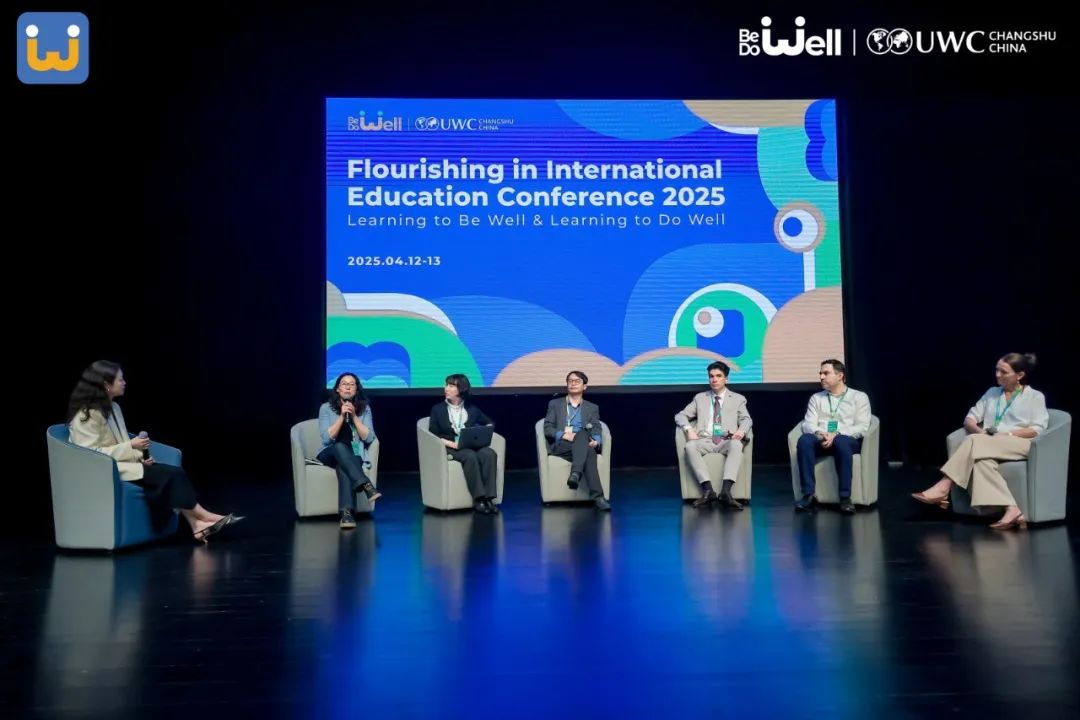
In the afternoon, the first panel discussion, titled "Addressing Adolescent Mental Health: Navigating Current Challenges and Building Pathways for Emotional Wellbeing in the Future," brought together speakers to discuss academic pressure, parenting approaches, social media impacts, and the evolving role of AI in mental health support.
Key takeaways from the discussion included:
· The internet and AI are double-edged swords—exacerbating loneliness yet offering scalable access to care;
· A "human-AI collaborative system" is needed to combine technological efficiency with emotional warmth;
· Integrating Eastern philosophy (e.g., Confucian self-cultivation and mindfulness) with Western psychology can strengthen therapeutic frameworks;
· De-stigmatized language and whole-school engagement are vital to creating inclusive and connected campus cultures.
Day 2
Systemic Interventions and Building Flourishing School Cultures
Keynote Speech by Prof. Ke Xiaoyan
Evidence-Based WHO Frameworks in China

The second day featured a keynote by Prof. Ke Xiaoyan, Director of the WHO Collaborating Centre on Child and Adolescent Mental Health (Asia-Pacific) and Professor at Nanjing Brain Hospital. In her talk, titled "Empowering Tomorrow | Policies and Practices for Youth Health Development in China," Prof. Ke shared national data showing that 17.5% of school-aged youth in China (ages 6–16) suffer from mental disorders, including neurodevelopmental, emotional, and behavioral challenges.
She presented the WHO’s three-tier intervention model:
· Universal interventions: school-wide group sessions on emotion regulation, mindfulness, and interpersonal skills;
· Targeted interventions: focused support for students affected by bullying, trauma, or poverty;
· Indicated interventions: structured therapeutic programs like the E.A.S.Y. project (7 student sessions + 3 parent sessions) that have shown measurable reductions in anxiety, depression, and absenteeism.
Her recommendations were grounded in evidence-based practice and included four strategic pillars:
· Policy alignment to ensure coherent multi-agency collaboration;
· Nurturing environments that foster safety and belonging;
· Parent empowerment through training in emotional regulation and positive family practices;
· Youth agency via peer support structures and self-help systems.
Panel discussion 2
From Vision to Practice—Leadership for Flourishing School Cultures
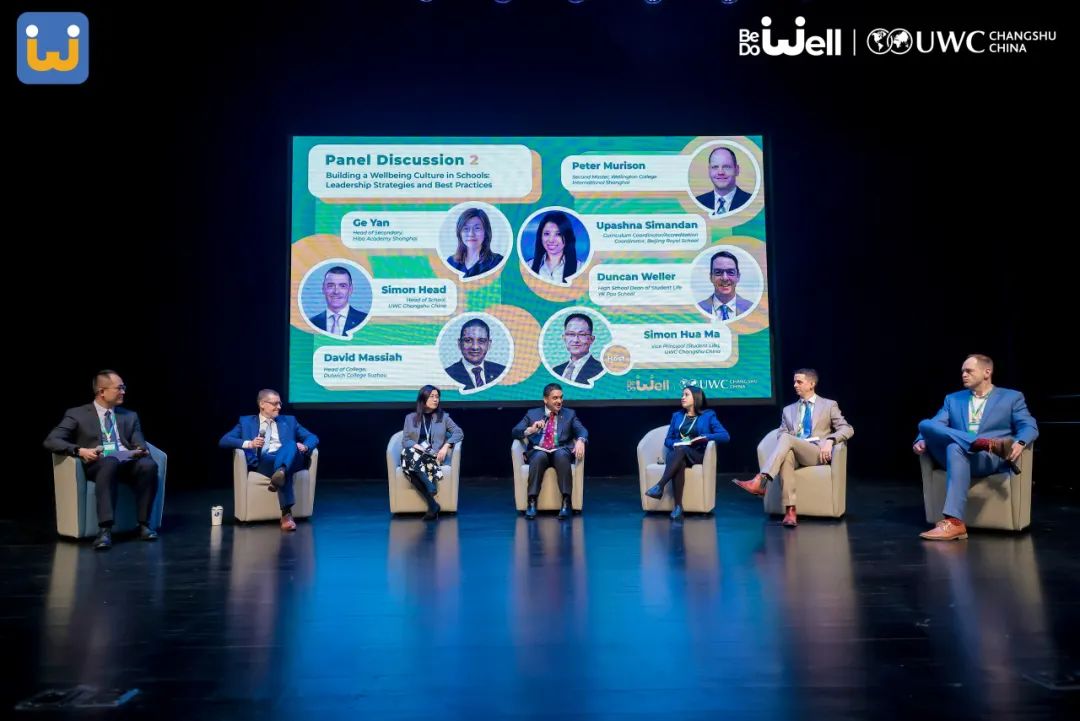
The second panel discussion explored leadership strategies under the theme "Building a Well-being Culture in School: Leadership Strategies and Best Practices." School leaders shared practical insights, agreeing that:
· Wellbeing education must be embedded into every aspect of school life—from curriculum and behavioral norms to physical spaces;
· The balance between tech and humanity is key: while AI enhances efficiency, human connection must remain central.
· Fewer but deeper interventions are more effective than superficial program overload.
· Localization is crucial—international frameworks must be adapted to China’s educational context with cultural sensitivity.
25 Parallel Workshops
Diverse Pathways, Bold Innovations
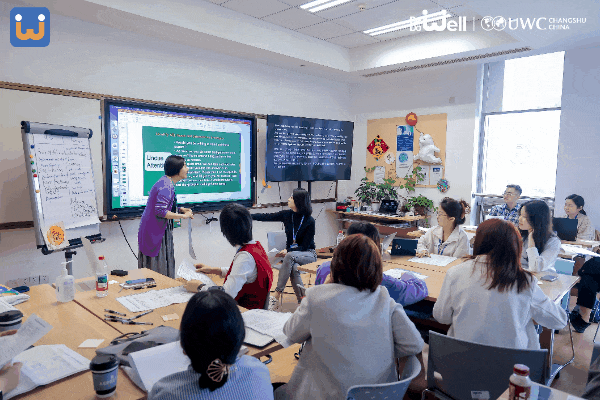
The conference hosted 25 hands-on parallel workshops, covering a broad spectrum:
· Inclusive School Culture: anti-bullying strategies, whole-school mental health systems, SEL programs;
· Student Support: trauma-informed care, behavior regulation techniques;
· Teacher Development: emotional intelligence training, coaching-style teaching;
· AI and Ethics: diagnostic innovations, ethical human-AI collaboration;
· Home–School–Community Collaboration: neurodiversity support, depression recovery ecosystems.
Workshops showcased both cutting-edge therapies (e.g., expressive arts) and disciplinary integrations of wellbeing into academic subjects—demonstrating multi-disciplinary, multi-layered solutions for thriving school communities.
A Decade of Wellbeing at UWC Changshu China
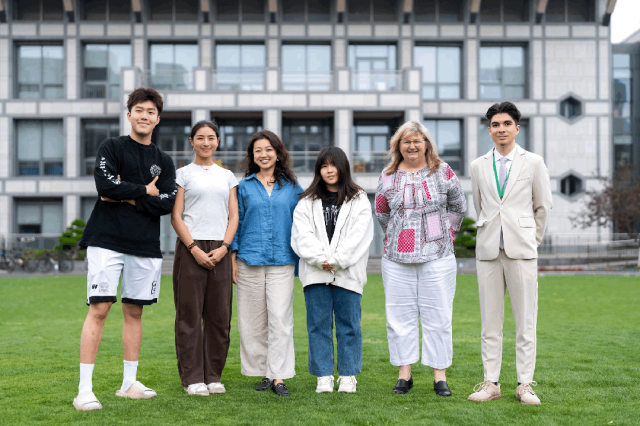
2024-2025 UWC Changshu Social-Emotional Counseling Department
This year also marks the 10th anniversary of UWC Changshu China. The school’s Social-Emotional Counseling Department has grown from one counselor to a professional team of four full-time and two intern counselors, serving a culturally diverse student body from nearly 100 countries.

Peer Support Group (PSG)
From the early days to the post-COVID landscape, the school's wellbeing framework has remained adaptive and student-centered. Initiatives like the Peer Support Group (PSG)—where trained student counselors support peers under professional supervision—and the annual Self-Care Week—featuring bonfire & jam sessions, free hugs, pet gatherings, and more—reflect UWC's commitment to holistic wellbeing.
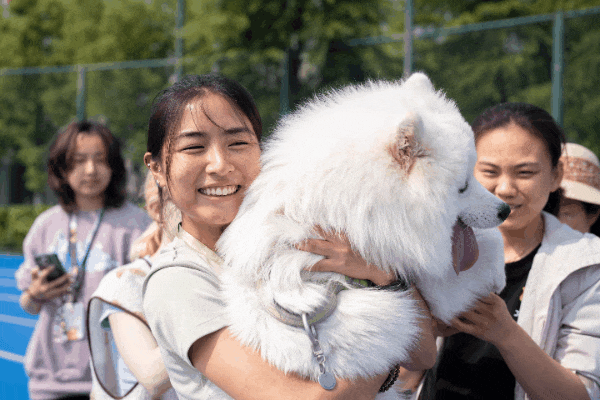
Self-Care Week
Staff wellbeing is equally valued, with school-wide activities like lakeside picnics fostering connection and relaxation.
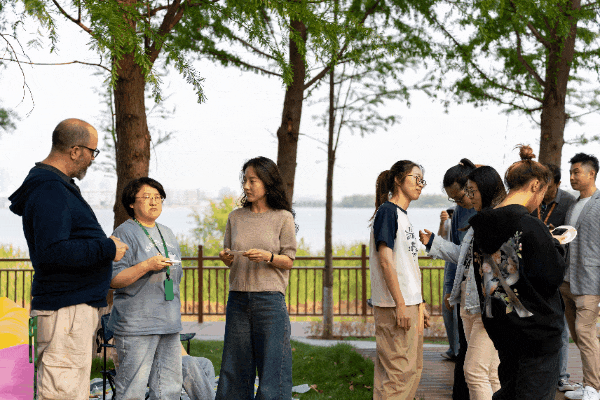
Shool-wide staff activities
Looking Ahead
Co-Creating Ecosystems of Flourishing
The conference was more than a gathering—it was a collective step forward in advancing adolescent wellbeing. Educators from diverse cultural backgrounds came together in genuine dialogue, united by a shared mission.
As we move forward, we hope to sustain this momentum through deeper collaboration and innovation in wellbeing education. Together, let us plant seeds of hope and nurture a generation of empowered, connected, and flourishing young people.
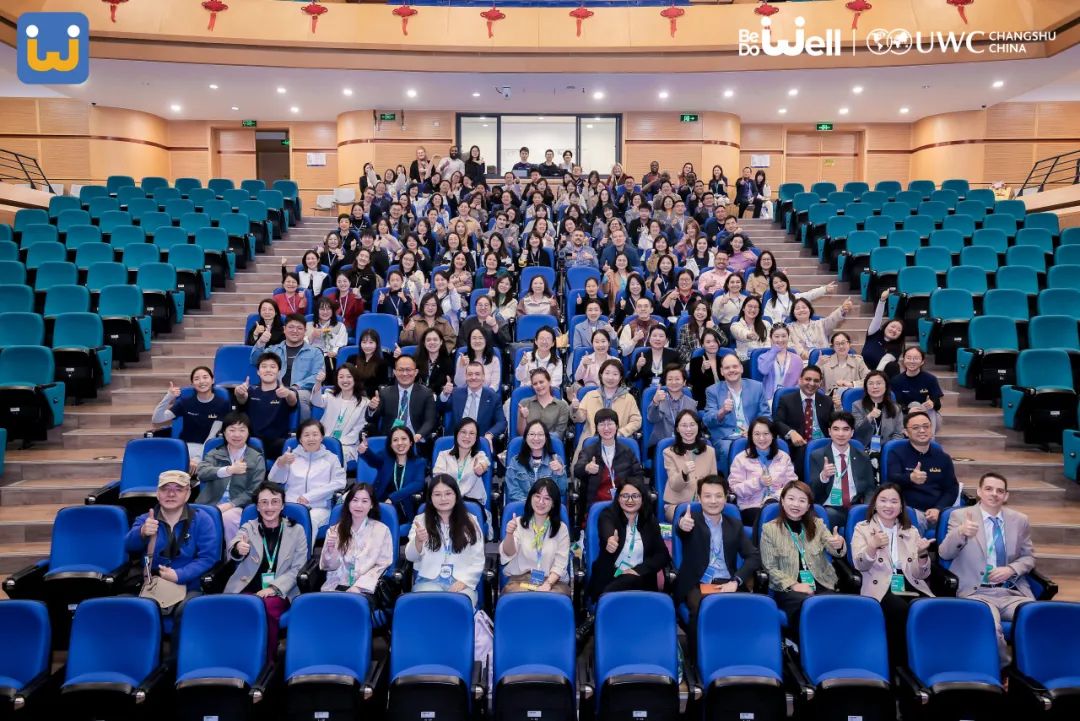
If there are any questions,
please email
flourishing@uwcchina.org

End











